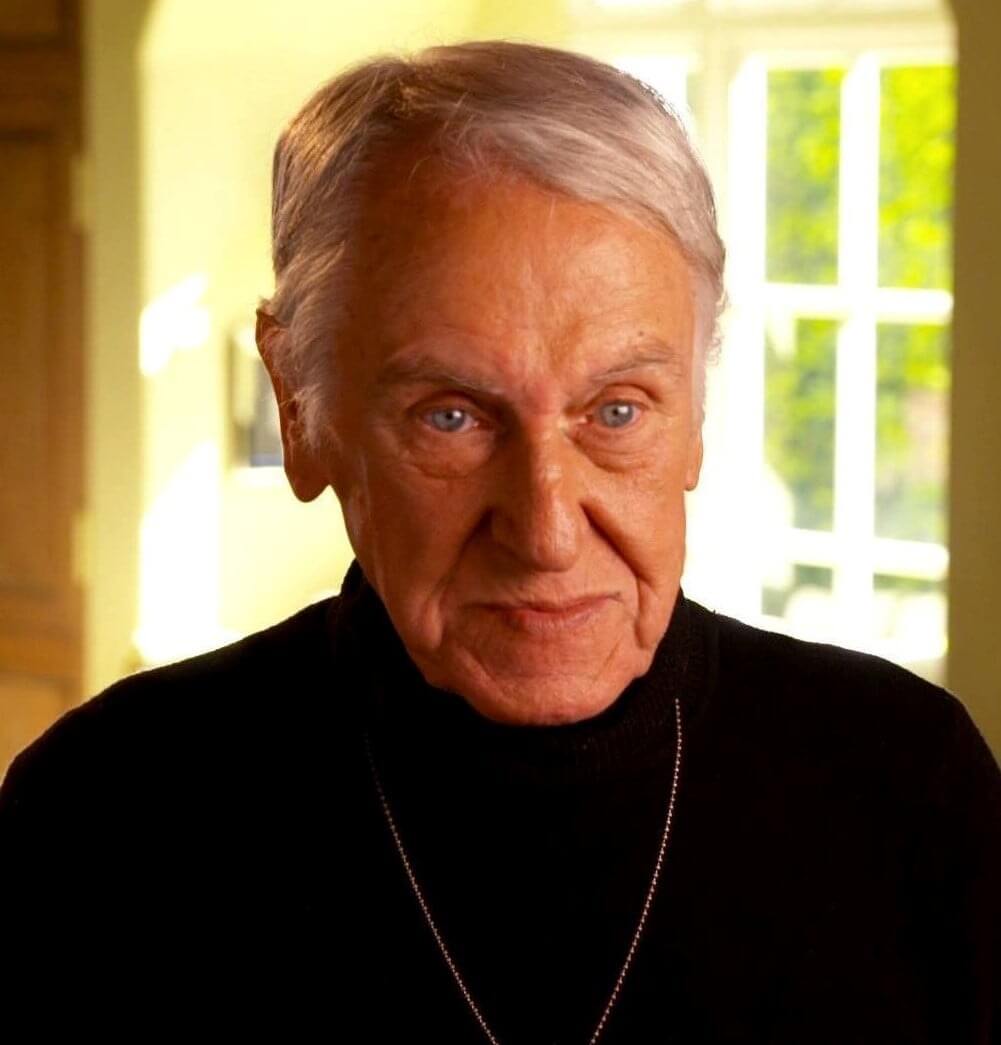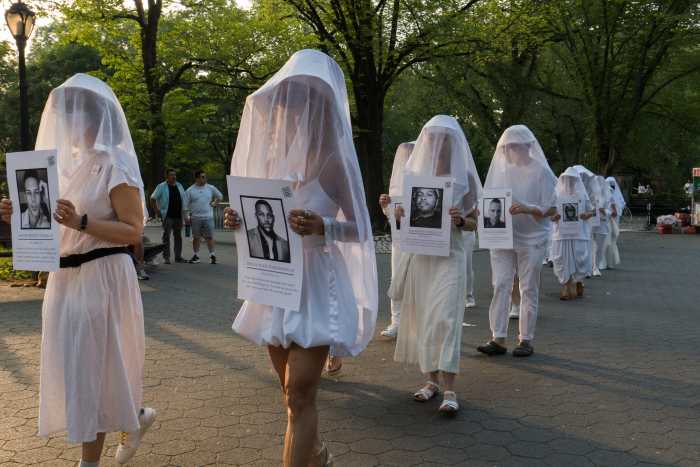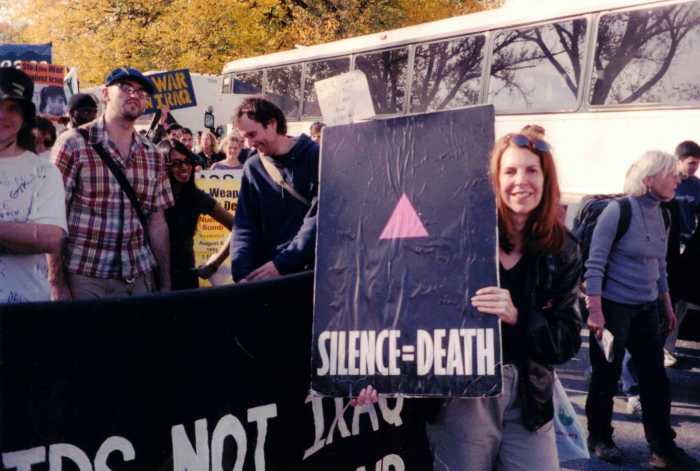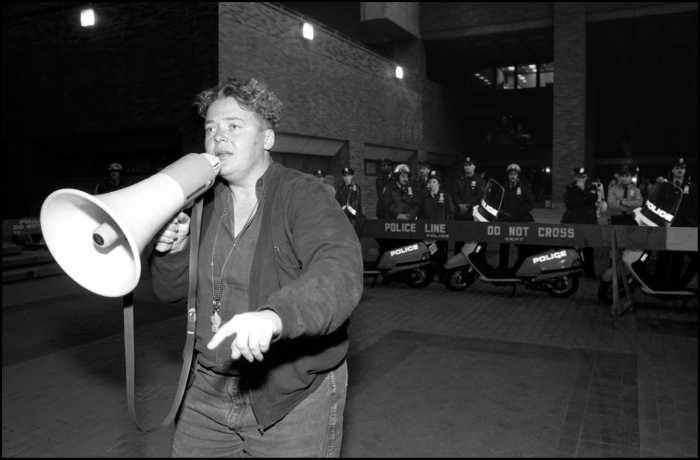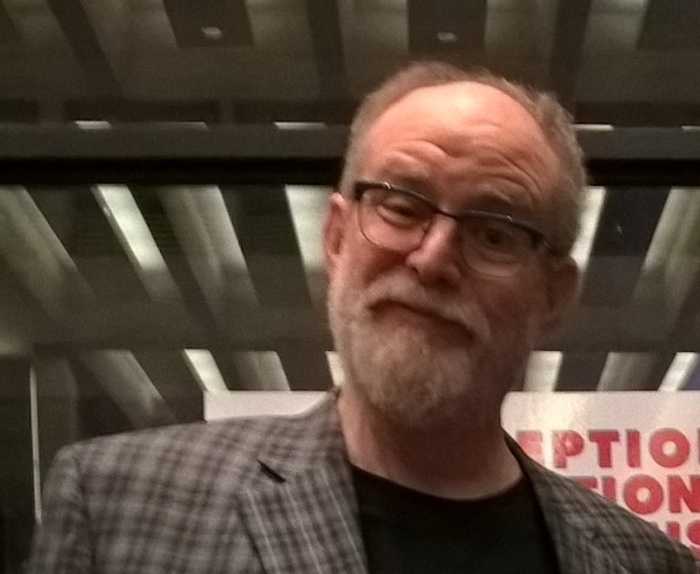“It’s magic time…” Joe Cino said each evening at the Caffe Cino, a tiny venue on Cornelia Street in the West Village, one of the birthplaces of off-off-Broadway/indie theater. He’d ring a set of bells and the show would start.
“I followed a pretty boy in,” Robert Patrick told Michael Musto in Paper magazine. “His name was Johnny Dodd. I was walking down the street. It was my first half hour in Manhattan, from New Mexico. I followed this pretty boy who had long hair and was selling jewelry. He turned into Caffe Cino, and it turned out to be the wellspring of 20th century theater.”
Robert Patrick, American playwright, was born Robert Patrick O’Connor, to a family of migrant workers in Texas in 1937. He passed away in Los Angeles on April 23, 2023.
On that fateful day in 1961, Patrick was passing through New York City, headed back to New Mexico, where his family lived and where he’d been thrown out of the Air Force for being gay.
What he saw at the Cino transformed him, and many others, and they came together in a burst of creation in American theater that continues today.
Spending his nights downtown at the Cino, La MaMa Experimental Theatre Club, and other off-off venues, Patrick learned by doing in the nascent scene: from waiting tables, to house managing, to running lights, and whatever else needed to be done. He learned with and shared living quarters with other playwrights and theater artists, from Lanford Wilson to Doric Wilson (“Street Theater”), William M. Hoffman (“As Is”), H.M. Koutakas, Sam Shepard, Marshall Mason, Magie Dominic, Megan Terry, Merrill Mushroom, and many more in the East and West Villages.
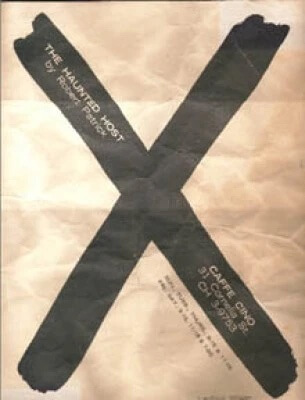
He wrote his first play, “The Haunted Host,” in 1964, and played the lead role himself, opposite Hoffman. Depending on who is telling the story, it might have been a printer’s error, but the author of the play (and all his subsequent plays) was listed as “Robert Patrick.”
“The Haunted Host” is one of the first plays in the American canon with an openly gay leading man and opened the floodgates for more plays with unapologetic gay/lesbian/queer characters. Patrick spent the rest of the ‘60s and ‘70s writing, producing, and directing all over New York. In 1969, Patrick’s play, “Camera Obscura,” starring Marge Champion, was filmed and shown on PBS.
By the early ‘70s, Patrick was named by Samuel French (the play publishing/licensing agency) “New York’s Most-Produced Playwright,” with over 300 productions of his work.
Patrick wrote a funny, sexy roman a clef about his Cino years, called “Temple Slave,” in 1994. It’s out of print now, and ridiculously high priced on the used book market. Patrick used to send PDFs of the book to friends and fans who wanted to read it.
Patrick made it to Broadway in 1975. “Kennedy’s Children” is a play featuring five characters in a Lower East Side bar (inspired by Phebe’s, still on E. 4th St.), reflecting on how their lives have changed in the 10 years since John F. Kennedy’s assassination. It was produced in London at The Kings Head (a pub theater) and became the first “fringe” play to transfer to the West End. It opened on Broadway in 1975, and Shirley Knight won the Tony for her portrayal of Carla. It was produced as a TV film in 1982.
“The wit is as hard as nails and as sharp,” Clive Barnes wrote in the New York Times. “Mr. Patrick hears well and writes so colloquially, so idiomatically, that you could actually be eavesdropping on the drunken but revealing, paranoid but illuminating meanderings of the barstool set of had cafe society.”
In 1976, Marlo Thomas commissioned Patrick to write “My Cup Ranneth Over” for her and Lily Tomlin. When Thomas didn’t produce the play, she gave the rights to Patrick, which he frequently mentioned with gratitude, and it would become Patrick’s most produced work.
Patrick continued to work in New York, and for many years traveled and lectured for the International Thespian Society, where he gained a new appreciation for the work being done throughout the United States and for some American classic plays.
“There was a condescending crack we all used to make when our work was unappreciated,” he wrote in an essay for Dramatics magazine in 1979. “We’d say, “Oh, they’d rather keep doing ‘Our Town.’” Well, I saw ‘Our Town’ recently in a theatre in California and do you know something? ‘Our Town’ is wonderful. I’m glad it’s still around. All plays are wonderful or can be — and if they don’t speak to you, give yourself time, or step aside and let them speak to the people they do speak to.”
Patrick relocated to Los Angeles in the mid-‘90s. He made a life for himself there, continuing to write plays, as well as ghostwriting, and even reviewing porn DVDs. Patrick emerged as one of the keepers of the flame of the early years of off-off-Broadway, and with the coming of the internet, made a place for it there.
He connected with other theater makers around the world on the usenet groups where aficionados gathered even before AOL. He kept his AOL address for the rest of his life, and as an online world emerged, taught himself how to build web pages, corresponded with everyone who found him, and reached out to scholars to make sure the history of independent theater was chronicled and annotated.
His original website is still up, though some of the links are broken. His Caffe Cino pages contain rare photos, posters, and scripts, still being sorted through by scholars.
In 2004, TOSOS (The Other Side of Silence), the NYC theater founded by Doric Wilson, presented the world premiere of Patrick’s play, “Hollywood and Sunset.” TOSOS continued to present Patrick’s work, with readings of “The Haunted Host,” “Sound,” and “Untold Decades,” Patrick’s cycle of plays set in each decade of the 20th century.
When Facebook came on the scene in the late 20-aughts, Patrick made it his online home (calling himself Robert Patrick, Playwright as opposed to the “Terminator” actor), and seemed to be online all night most nights (West Coast time), bidding a fond goodnight to actress Sally Kirkland each evening.
When his doctor pronounced him healthy, but overweight, he began walking all over Los Angeles, taking and posting pictures, and writing about the people he met. He worried about being hit by bicyclists and organized a giveaway of 100 bike bells (he said he still never heard one after that).
He also celebrated friends’ birthdays with videos of himself singing.
Acquiring thousands of online friends and followers, Patrick even listed his home phone number in his profile. The loss of old friends hit him hard. He worried that no one would remember the Cino. After his great friend, playwright Doric Wilson, died in 2011, he mailed stacks of his papers to the NY Public Library’s Billy Rose Theater Collection, where his old colleague Magie Dominic worked. (Wilson left behind an uncompleted play, “The Boy Next Door,” with a lead character inspired by Patrick.)
In the last decade of his life, Patrick was embraced by a chosen family that surrounded him with affection, encouragement, and helped him through the hardships and challenges of continuing to live in an expensive city.
Jason Jenn, the prolific artist, took Patrick under his wing, and with other friends and allies, made sure Patrick was safe and healthy, as well as helping find him venues to perform in and produce new work. Patrick wrote a solo show, “What Doesn’t Kill Me Makes a Great Story Later,” in 2014, and continued to sing and recite his poetry until a few weeks ago.
In 2017, three of Patrick’s short plays were presented by La MaMa and its multimedia collective CultureHub as “HI-FI, WI-FI, SCI-FI Predictions Past Present and Future.” Patrick returned to New York City for the first time in years, and even stayed at La Mama, wandering his old neighborhood, and wondering at the changes.
Patrick pinned a video of himself singing a song called “Mercury Retrograde” at the top of his Facebook feed on April 18, and it’s still there, greeting the friends who have stopped by to share their memories, photos and condolences.
Celebrations of Patrick’s life will be held in Los Angeles and New York later this year; Patrick’s friends and family (he is survived by a sister, Angela, aka “Bunny,”) are just beginning to take care of the details of the departure of a great and memorable artist, who leaves behind more than 60 plays, two books, hundreds of poems and songs, and many people who will miss him.
As Patrick reminded theater lovers in “Dramatics”: “We have seen the creation of life so often that we have forgotten it is a miracle.”

